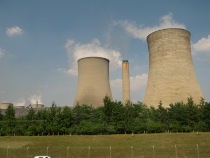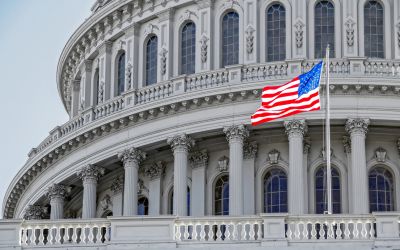Going Nuclear
President Obama's latest budget proposal guarantees $54.5 billion for new nuclear energy plants and nuclear R&D.

 President Obama's latest budget proposal guarantees a $54.5 billion investment for new nuclear energy plants and nuclear research.
President Obama's latest budget proposal guarantees a $54.5 billion investment for new nuclear energy plants and nuclear research.
Support for nuclear power is increasingly popular among lawmakers and the United States' public. Recent polls suggest nearly 60 % of the people now favour nuclear energy as an alternative source for electricity.
Republicans are likely to support the president in this measure; its inclusion into the bill is part of a deal-breaker to help the Obama administration pass the budget through the Senate.
The federal budget presents a huge opportunity for electric power companies.
While at the moment there is simply no room in most company budgets to fund the construction of new nuclear power plants, the new budget will clear the room for nuclear re-investment.
The United States is already the world's largest producer of nuclear energy, accounting for more than 30% of the entire planet's output. Plants today are more efficient, better maintained, and building designs face stronger regulation than they did in the past.
States experiencing an increase in energy demand, such as Florida and Texas, present the greatest potential for nuclear re-investment. And international companies such as France's Electricité de France (EDF) already have $4.5 billion invested in US nuclear development.
Of course, new energy proposals are never two steps forward-seemingly there is always at least half a step back. A solution to nuclear waste storage has yet to be found, and Obama declared 1987's oft-debated plan to store nuclear waste in Nevada's Yucca Peninsula, "dead."
Most environmentalists vehemently disagreed with the Yucca Penninsula proposal. In any case, for the time being and foreseeable future, nuclear waste will continue to be stored in and around the power plants that produce it.
Clearly, an alternative needs to be found if nuclear energy is to be a cornerstone in future energy consumption and production.
The 2011 budget will also remove tax breaks for gas and oil companies, industries in which both profits and prices are rising.
The budget will also instate a "deficit neutral" cap-and-trade system on CO2 emissions-a departure from last year's budget, which anticipated $650 million over 10 years in future revenue.
The weaker federal cap-and-trade legislation means renewable energy companies will have to be more creative in working with local governments.
In total, 2011's budget shows an increase of $113 million from last year's budget, including a 22% increase in solar investment, totalling in $302.4 million.
As a result, the WilderHill Clean Energy Index, which tracks 42 companies dedicated to clean and renewable energy, saw stocks rise by 3%. If the budget passes, the results will likely remain in line with the emission targets Obama set at the international level.
Author: Michael Good | Climate Action
Image Provided by: redjar | Flickr


_400_250_80_s_c1.jpg)



